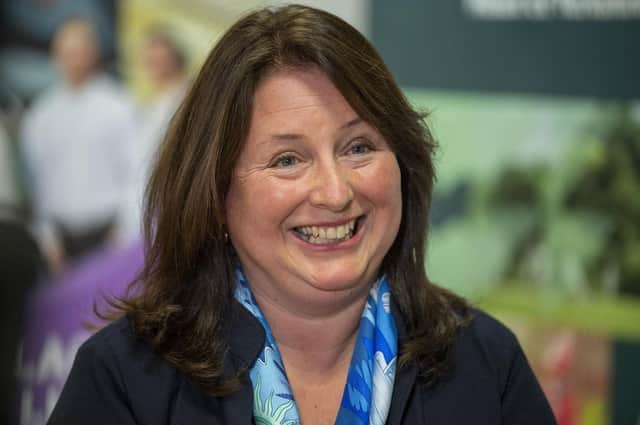Zoe Metcalfe: Who is North Yorkshire’s new Police, Fire and Crime Commissioner?


Ms Metcalfe received 41,760 votes overall, while Labour candidate Emma Scott-Spivey received 26,895.
However, Ms Metcalfe’s votes were approximately half of her predecessor’s, as Mr Allott won the initial election by 83,737 votes.
Advertisement
Hide AdAdvertisement
Hide AdThe by-election was called after Mr Allott resigned in October this year due to a widespread of public anger following the comments he made about violence against women and girls.
Other candidates who ran against both Ms Metcalfe and Ms Scott-Spivey were Hannah Barham-Brown from the Women’s Equality Party, James Barker (Liberal Democrats) and Keith Tordoff (Independent).
The election saw a turn out of 13.94 per cent - less than the initial election in May this year.
Who is Zoe Metcalfe?
The Harrogate district and county councillor also works as a project manager for a property asset management company and has previously founded and run a children’s mental health charity.
She represents the Conservatives.
What are Zoe Metcalfe’s plans as the new PFCC?
Advertisement
Hide AdAdvertisement
Hide AdMs Metcalfe believes that policing must be under great scrutiny, particularly following the murder of Sarah Everard that sparked a nationwide debate about women’s safety.
According to her manifesto, she aims to restore trust in the police force, while supporting their work.
Her priorities now that she is elected are:
- To hold policing services to account and introduce resources and initiatives to make society in North Yorkshire and York a safer place with a specific focus on women and girls’ safety.
- To challenge anti-social behaviour, burglary, rural crime, pet theft and road safety.
Advertisement
Hide AdAdvertisement
Hide Ad- To reduce consistent disruption of serious and organised crime such as drugs and county lines, violence, child sexual exploitation and abuse.
- To show support for victims and safeguard the vulnerable.
- And lastly, to increase resources and funding by blue light collaboration to deliver an improved value for money for taxpayers.